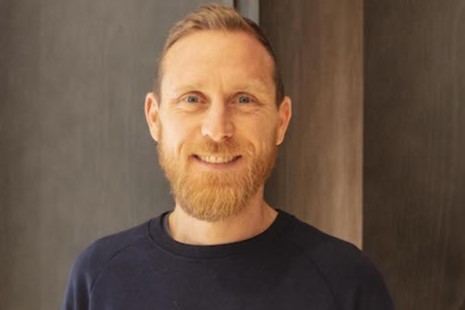Mark Law, above, is managing director of business-and-digital consultancy GAIN LINE, which he founded in 2021. He’s also been MD of its SME parent group WilsonCooke since 2014, having started his career as a developer in the mid-2000s. Here, SME Magazine catches up with him to hear his insights on what good SME leadership looks like in his sector
What are major leadership factors you need to consider when founding an SME?
WilsonCooke is a brand performance agency, but my aim for GAIN LINE was to have a separate operation based around our Sprint model of rapid business change.
Some of the GAIN LINE team came from WilsonCooke, but it was very important to make it clear that GAIN LINE was a blank piece of paper. From the very outset the team were massively involved in the development of its culture and visions. Anything they weren’t comfortable with, we dropped so there was no baggage. We spent a lot of time developing the culture – and still do.
It’s key to have real clarity among about what services you are providing and how they differ from other firms, too.
What leadership methods should an SME leader employ day-to-day?
I’m a big believer in autonomy. If you have a small team, you have to trust them. You mustn’t micromanage. We trust that everyone at GAIN LINE is here to work together towards achieving joint goals and being collectively rewarded.
I have never seen the firm as being about just me in charge. I have a leadership team and we don’t so much lead from the front as from the rear, allowing our colleagues to demonstrate their expertise.
We are fully remote with a really, really flexible work environment. That has to be built on certainty that you can rely on people to do the right thing. But the number of staff at an SME means there is nowhere for people to hide if they aren’t pulling their weight, anyway. The rest of the team will call them out for it. If you trust your team and have a good staff culture, an SME can become almost self-managing.
Excellent communication is really important in leadership, too, including the systems you establish. We have a company information hub, so everyone can find anything they need to about the business, instantly. And things like Slack means we can talk to each other easily. There’s real clarity and visibility between us. And we do meet up as often as we can, particularly when there’s an “all hands” type issue.
Business consultancy agencies have often been quite toxic. I’ve worked really hard to not have that. We have clear, open feedback with a genuine emphasis on learning from experiences. Leadership shouldn’t be about pointing fingers. When something goes wrong, it’s rarely one person’s fault, anyway.
You must make sure your staff work without a fear of failure. If they have a constant dread of the consequences of making a mistake, they’ll probably make more errors. Teams who work without fear tend to work better together.
As a business consultancy, you are advising CEOs and MD from other SMEs. How do you tell other leaders to lead?
Our consultancy is very much about the team. The power of our Sprint work is the alignment it brings to a business, inviting people from different sections and of different seniority to collaborate – on a level playing field – to improve their organisation. We ask leaders to check in their job titles at the door of our workshops. Often the best solutions come from the least expected person – like an office junior – if everyone is given an equal voice.
What personal qualities have you had to develop as an SME leader?
I was a bit feisty and tried to be hardnosed when I was younger. That doesn’t always work best. I had this idea that you need to be a certain type of person to succeed as a leader – nothing like I was at home. But I’ve learned that if you try to be something you’re not, you’ll probably trip yourself up, eventually.
Authenticity is crucial. To say, “this is who I am and this is how I work best”. You develop better relationships that way. It’s absolutely fine to try to develop your skills. But if you don’t have a passion for something – from project management to selling – bring in people who do.
What have been some of your biggest leadership challenges at GAIN LINE?
We started during COVID, and learning to work remotely was certainly a challenge. Not being visible in the office all the time isn’t necessarily a bad thing, but sometimes you don’t see issues you should probably be involved in. Remote leading is an ever-evolving thing, and people will continue to get learn and get better at it.
Some employees, particularly younger people, seem to be less resilient since the pandemic. As a leader, you need to be understanding and supportive, but also be able to strike a balance and show that sometimes life and work is hard! I’ve been in charge of businesses during rounds of redundancy, losses of big clients and pandemics. The thing I’ve always tried to do is to be open and honest with everything.
GAIN LINE has offices in Manchester and London and offers business and digital consultancy across a wide range of sectors – from retail and manufacturing to healthcare. For more information, visit gainline.co.uk


